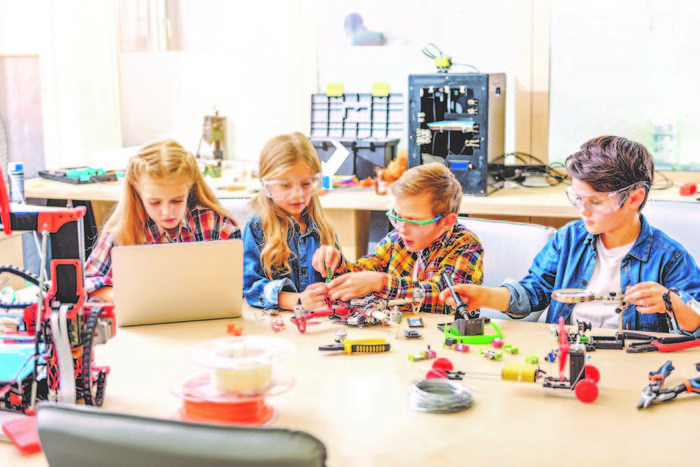The first contact with technology, the discovery of the operating principle of the electronic devices that surround it, essentially becoming aware of a material that permeates reality so much. And then train the logical-mathematical, spatial and linguistic intelligence, learn the basics to reason in an algorithmic way, identify the solution, break down the problem and order the sequence of steps to be performed. And then, at an already advanced level, understand how a robot is made, how robots are used, what are the main components, put logical reasoning into practice, develop a solution algorithm in the form of a horizontal sequence of instructions and have a robot execute them. . Already under the age of 12 you can train in logical-mathematical, spatial, kinesthetic body intelligence.
The first headquarters of the Campus project opened in Rome, an innovative reality designed for children and young people, with contents straddling the play and educational activities. Learning by playing is always a good method, and if the subjects are robotics, electronics, coding and virtual reality, it becomes (also) serious. And the purpose of Campus, the R-Store project, is to transmit true digital competence with a language suitable for users under 12.
The youngest, despite being born in the middle of the digital age,
tend to make a passive use of technology
, without awareness what electronics can give in terms of creativity, problem solving, development of logic.
We must guide them in overcoming this superficial approach,
giving skills
but above all
providing the tools for a logical and profound reasoning,
and at the same time raising awareness and stimulating on social and real issues.
The classroom is shaped like a spaceship and from this dimension we start the educational journey with an active role, however, there are no preset kits, but new activities are created on specific topics, aimed not only at developing logical, cognitive and creative, but also to raise awareness on important issues such as sustainability, energy, the smart city as well as transferring skills to analyze, experiment and formulate solutions applicable with technology. This philosophy provides that the child is left free to think, try, make mistakes, create and invent, developing not only
the Digital Skills
s - the skills already present in digital natives - but developing a mental approach aimed at logical reasoning and problem solving. The pupil becomes a real "little inventor". An object is created and programmed electronically, using IPads, Apple programs and apps optimized for use on these devices.
The courses, which range from workshops of a few hours to the complete annual course, are divided into modules, each of which is designed to encourage the learning of a technology through direct experimentation, collaborative play and cooperation.
In fact, computer literacy is not a goal, but a method that allows you to enhance the learning of computer skills, but also of all disciplines and transversal skills and the products and the platform offered by Apple are the basic tools.

